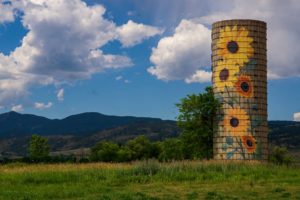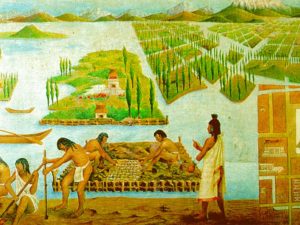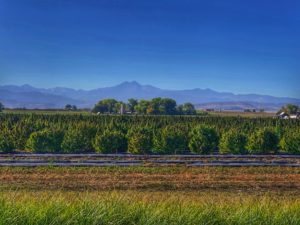When I began on my journey of making Poor, I had some preconceived notions about America and the people who work our land and feed our citizens. I’m of course speaking of America’s farmers. When Trump won the election in 2016, I placed the blame on farmers for ushering in this living disaster into the White House. I let my anger and frustration get the best of me and it clouded my judgment on who farmers are and how they think. I admit I was guilty of showing zero remorse for farmers who began to suffer under Trump’s ridiculous tariff war with China. I was all in on “they get what they deserve” and “they elected him, let them pay the price.” However, in my journey of filming, I found my attitude about farmers to be a horrible miscalculation and still feel horrible about my words and animosity today.
Last summer I brought in Jillian Hurley as a producer to the Poor team. Jillian is an empathetic soul and not quick to judge to begin with. Jillian would take issue with my acidic comments about farmers and their support for Trump. Jillian was raised on a farm in Oklahoma and sympathized with farmers and had infinitely more exposure to farmers’ thoughts and feelings than I did. My image of a bunch of rubes toiling in the dirt and riding tractors was a stereotype that I needed to break down. So, I decided to look into the facts and tried to put myself in the head of a farmer, just as Jillian had encouraged to do. So, what did I find?
Farmers make up less than 2% of the population of the United States. This number is what first popped out at me, and I knew right then that my preconceptions were on shaky ground. In 2016 75% of rural farmers cast their votes in favor of Trump. That’s a large percentage and a substantial number, no doubt. But as a percentage of the entire electorate? Not so much. I knew from a metrics standpoint laying so much blame and vitriol at their plows was dishonest on my part. Furthermore, how could we dump so much of the blame on them? I was not alone with this animosity: It was rampant on social media, where many lashed out at farmers just as I did. But farmers were no more culpable of believing false promises and boasts fed to them by the con man who was vying for residency at 1600 Pennsylvania Avenue than the rest of the electorate. So, what were the promises he dangled to farmers to gain such overwhelming support from them?
Trump promised to support the Renewable Fuel Standard (corn growers/ethanol industry) and he also pledged to eliminate estate taxes on inherited farmland and roll back regulations on farm runoff. Most of all, farmers liked his tough talk on trade policy. They believed the image he projected of this tough-nosed negotiator and great dealmaker—the supposed qualities that every Trump supporter believed. They heard hope in his promises. But, like so many have been duped by Trump over the years, farmers got conned too. What he gave them was a campaign to destroy the North American Free Trade Agreement (NAFTA) and an ongoing tariff war with China that has killed farms and farming across the country.
In the end, what cut through all the news stories and statistics I had read about farmers and what really changed my image was when we filmed In Iowa. It was a wonderful yet sobering experience. Our first filming day was with Aaron Lehman the president of the Iowa Farmers Union. Aaron is a fifth-generation family farmer from rural Polk County, where he and his family raise corn, soybeans, oats, and hay in both organic and conventional rotations. We met Aaron at his farmhouse and he gave us a warm welcome into his home, which was lovely, charming, and immaculately clean.
I’m a talker. I’ll chat with the interview subjects throughout the process. Aaron could talk about any subject with knowledge and with a wonderful and easy charm. We filmed him working on his equipment as he prepared for the harvest before the November frost hit. This was no display just for our cameras. It was hard work and he answered my questions with perfect poise, intelligence, and incisiveness. Within 30 minutes, the stereotype I had of farmers was circling down the drain. Aaron then brought us out to the heavy machinery that he had to prepare, fix and adjust for the harvest. I was amazed at both the mechanical and technical knowledge required to run and maintain modern farming equipment. These huge work vehicles are truly like smart electronic devices, with GPS and a number of other features that I was unaware of. So much for my “know it all attitude.
We discussed issues that farmers face, not least why so many small and mid-size farms are all failing or being bought by Big Ag. We also talked about why farmers vote the way they do and much more. Then we discussed his family. Aaron had a son off at Cornell University, one of America’s finest universities. After meeting Aaron, that was no surprise. He clearly seemed to be a decent man who would do the right things right as a parent.
What had come to light for me is that farmers have to know a lot. They need to have mechanical knowledge, computer knowledge, agricultural knowledge, meteorological knowledge, business and market knowledge, and of course, a knowledge of how to navigate and influence politics.
Politics is the real beast for them, particularly for small and mid-size farms, which are pretty much on their own. Farm lobbies cater to Big Ag, not these farmers. Aaron was a leader in the fight to protect and support these smaller farms. He impressed me at every turn. I loved my time with him and can’t thank him enough for the knowledge he shared with me and for showing plainly what farmers are really like.
So, what did I learn in the end? It’s not farmers’ fault we have Trump, and they surely don’t deserve to be punished for his election. Like so many people, they just want to be able to be hopeful. They want to hope, not just for prosperity, but also for the chance to raise their families with respect and dignity. And they deserve that. After, they feed us all on a daily basis.
But they make no excuse to get us the sustenance we require to survive. They’re out in the fields every day working for all of us, and they deserve to heard and understood. And to think that I heaped blame them. I feel foolish now just thinking about it. But thankfully—and with the help of people like Jillian Hurley and Aaron Lehman—I’ve come to terms with my prejudice. I hope that Poor will help others that have the opinion I once held about farmers will rethink their views and recognize the decency and dignity and indefatigable work ethic that farmers have.



